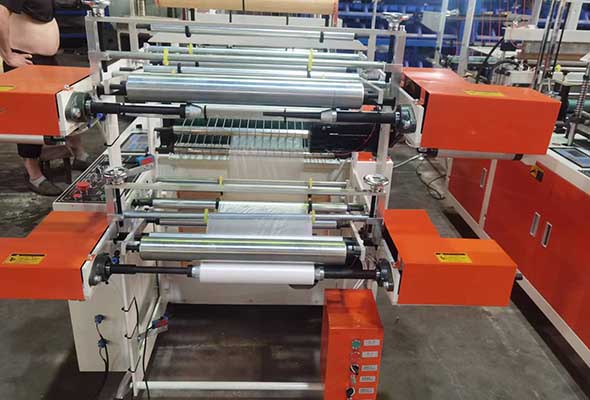Plastic distributors are vital to the supply chain of today. They connect plastic producers with industries who rely heavily on plastic materials. Plastic is used in almost every industry, from packaging and automobile manufacturers to construction and healthcare. Distributors make sure that the appropriate type of plastic is delivered to the client at the required time and quantity. Their services streamline procurement, eliminate supply bottlenecks, and help companies maintain consistent production cycles. Without distributors, many smaller businesses would face challenges sourcing plastic directly from manufacturers, especially in required amounts and specific grades. By bridging this gap, plastic distributors not only support the economy but also facilitate innovation across numerous industries.
A plastic distributor’s role goes far beyond delivering material. Many distributors offer their technical knowledge to clients in order to choose the best plastic for each application, be it a polymer with high temperature resistance for engineering applications or flexible film for packaging food. Some distributors offer custom services such as cutting, extrusion or molding. This allows customers to get materials ready for use. This approach adds value and saves clients time by reducing the amount of processing they need to do at their facility. Distributors can offer customized solutions to enhance product performance and efficiency by understanding the specific requirements of different sectors. They often work closely with engineers and designers to meet precise specifications and ensure that materials meet regulatory standards. This collaboration strengthens the relationship between distributor and client and drives product innovation.
Logistics and inventory management are two of the most demanding aspects of plastic distribution. Distributors need to maintain an extensive and diverse inventory in order to serve multiple industries simultaneously, from engineering grade resins to general purpose plastics. Timely delivery is critical, especially for manufacturers operating on tight production schedules or just-in-time inventory systems. Distribution companies must work closely with their logistics partners to manage the warehouse efficiently and respond quickly to supply chain or transportation disruptions. Customer satisfaction is directly impacted by their ability to predict demand, track deliveries, and manage fluctuations in supply. As global trade continues to grow, distributors must also navigate international shipping regulations and customs procedures, ensuring that clients receive their materials without unnecessary delays. Their logistical expertise is crucial in maintaining a stable and responsive supply network.

Plastic distribution has been significantly affected by the push towards sustainability. As environmental concerns grow, many clients are seeking alternatives to traditional plastics, such as biodegradable or recycled materials. The plastic distributors have been at the forefront in this shift, helping their clients to understand eco-friendly materials and how they can be incorporated into products without compromising on quality. Many distributors offer sustainable materials and have also adopted eco-friendly practices within their operations. These include energy efficient warehouses, reduced waste packaging, and optimized transport routes that reduce carbon emissions. These initiatives reflect a broader industry shift toward environmental responsibility and resource efficiency. Distributors help reduce businesses’ environmental impact by promoting sustainable practices and implementing them. They also ensure that they comply with ever-changing regulations. They are not just suppliers, but sustainability partners for an eco-conscious marketplace. For more information please visit here Hargaplastiksampahcor
Technology continues to reshape how plastic distributors operate and serve their customers. With the use of advanced software systems, distributors can automate order processing, manage stock levels in real time, and forecast demand more accurately. Customers can browse catalogs online, get quotes and track their orders, without having to waste time on back-and forth communication. Some distributors have integrated data analytics and artificial intelligence to optimize purchasing, improve delivery scheduling, and predict client needs. Digital tools improve operational efficiency, allowing distributors to react more quickly to changes in the market. By embracing technology, distributors offer a more seamless and transparent experience for their customers, which strengthens trust and fosters long-term business relationships. In a highly competitive industry, the ability to leverage technology is becoming a major factor in achieving success.
Plastic distribution has a bright future, driven by the growth of global markets and innovation. It also needs reliable materials. As industries become more specialized and products more complex, the demand for high-performance and customized plastic solutions will rise. The manufacturing industry will continue to rely on distributors who can adjust to this change by providing technical support, environmentally friendly options and efficient customer service. Their role will likely expand further, involving deeper collaboration with clients on product development and sustainability strategies. Plastic distributors can maintain their status as essential partners for industrial advancement by investing in training and technology. They will continue to be a key part of the global manufacturing industry for many years to come because they are able to provide services that add value, connect demand with supply, and promote responsible materials usage.
